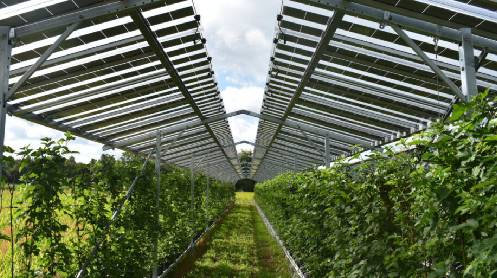Canadian researchers have conducted a lifecycle analysis showing that it’s good for the environment to put solar on rooftops, but a mix of small-scale PV and agrivoltaics might be a better alternative.
A study conducted at the University of Western Ontario compared both large and small solar installations and concluded that small-scale solar systems are better for the environment than even the largest, most efficient, utility-scale solar projects.
Solar is scaling up in the United States and Canada in part because solar energy is the lowest-cost form of new-build electricity in many markets, according to an energy and resources report by Ernst & Young. It notes that the global weighted average levelized cost of electricity (LCOE) for solar is 29% lower than the cheapest fossil fuel alternative.
To eliminate carbon emissions and meet national clean energy goals, many more solar panels must be installed. A study that looked at the agrivoltaic potential in Canada predicted that it would need only 1% of the nation’s agricultural land to offset all fossil fuels for electricity generation. While this is a modest amount of land, the researchers at University of Western Ontario questioned whether it is better for the environment to have a few large-scale solar farms or many smaller rooftop systems.
The lifecycle analysis study conducted by Riya Roy and Joshua M. Pearce compared rooftop solar systems to multi-megawatt utility-scale solar PV systems, from production to decommissioning. The researchers found that rooftop solar systems require 21% to 54% less input energy, make 18% to 59% less carbon dioxide equivalent of greenhouse gas emissions, and consume a lower quantity of water, ranging from 1% to 12% per kilowatt-peak.







